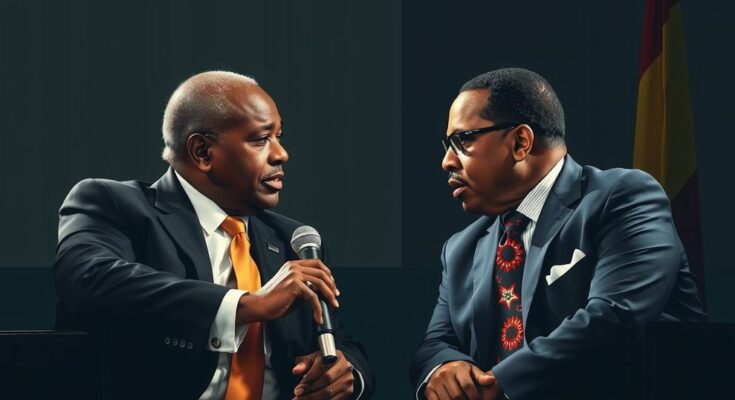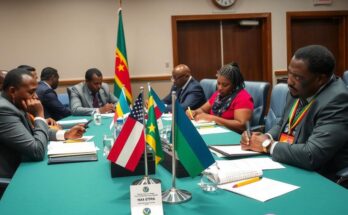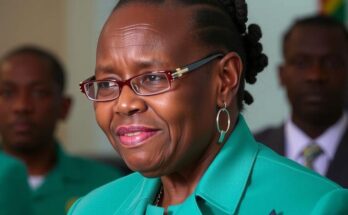The Democratic Republic of the Congo continues to face profound challenges exacerbated by ineffective leadership and ethnic tensions. Ministerial remarks have incited concern over the treatment of the Tutsi community, indicating a dangerous trajectory for national unity. Nkrumah’s assertions about leadership reflect a historical pattern of betrayal in the DRC, urging a reconsideration of governance in favor of continental unity.
The ongoing turmoil in the Democratic Republic of the Congo (DRC) is emblematic of a profound sadness that plagues its history, as articulated by Patrick Loch Otieno Lumumba. Kwame Nkrumah, when reflecting on the DRC’s future, stated that unity within the African continent is the only viable path forward. The current leadership in the DRC, however, seems to stray from such unity, as manifested in the controversial statements of high-ranking officials. \n\nJustice Minister Constant Mutamba was recorded urging inmates at Munzenze Prison to support the arrest of President Paul Kagame and advocated for executions of M23 affiliates, actions that reflect governmental bias and a disregard for human rights. This behavior is echoed by Foreign Minister Therese Kayikwamba, who referred to members of the M23 as “so-called Congolese,” despite her own heritage. This raises critical questions concerning identity and belonging for the Congolese Tutsi community, whose lineage in the DRC extends far beyond Kayikwamba’s own family history.
The Democratic Republic of the Congo has a complex and tragic history marked by colonial exploitation, internal strife, and leadership crises. The legacy of Patrice Lumumba, the country’s first Prime Minister, is particularly significant, as he is regarded by many, including Nkrumah, as the last true leader of the DRC. Subsequent leaders have often been perceived as pawns of foreign powers, leading to widespread disillusionment among the Congolese populace. The persistent conflict with Rwanda has exacerbated these issues, complicating the national narrative further, and reflecting deep-seated ethnic divisions.
In summary, the DRC’s plight underscores the significance of effective leadership and unity among its populace. The existing governmental rhetoric symbolizes a troubling trend of division rather than reconciliation, perpetuating the cycle of conflict. Nkrumah’s insistence on the need for a continental political unity resonates strongly amidst the current leadership’s failures, suggesting that without a collective approach, the DRC may continue to grapple with leadership modeled after betrayal rather than inspiration.
Original Source: www.newtimes.co.rw




